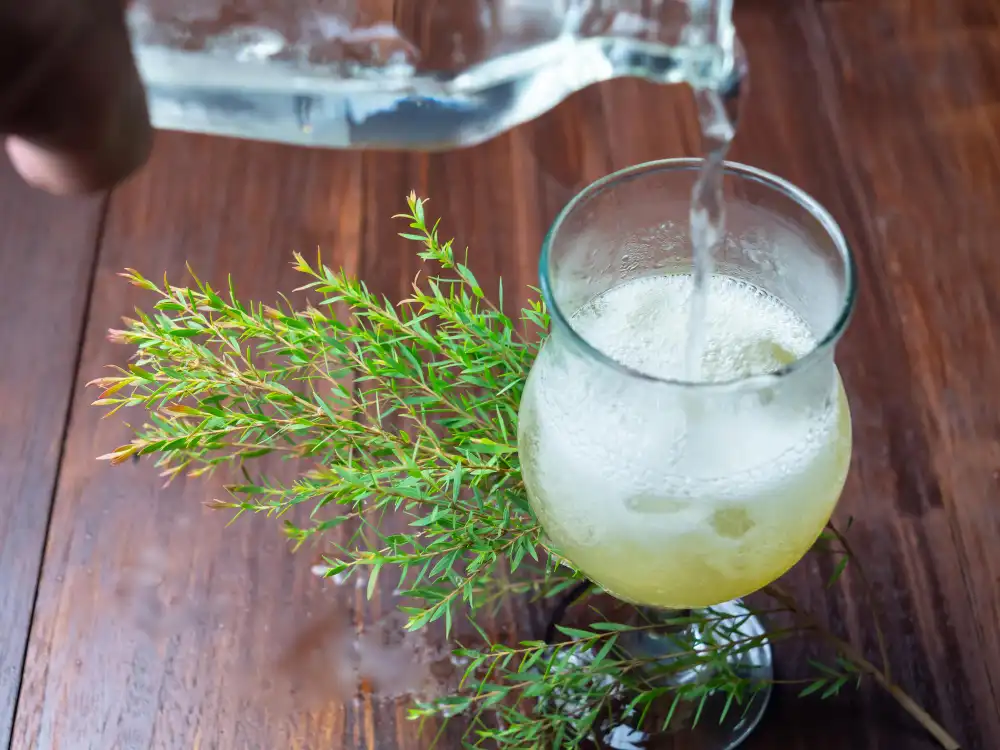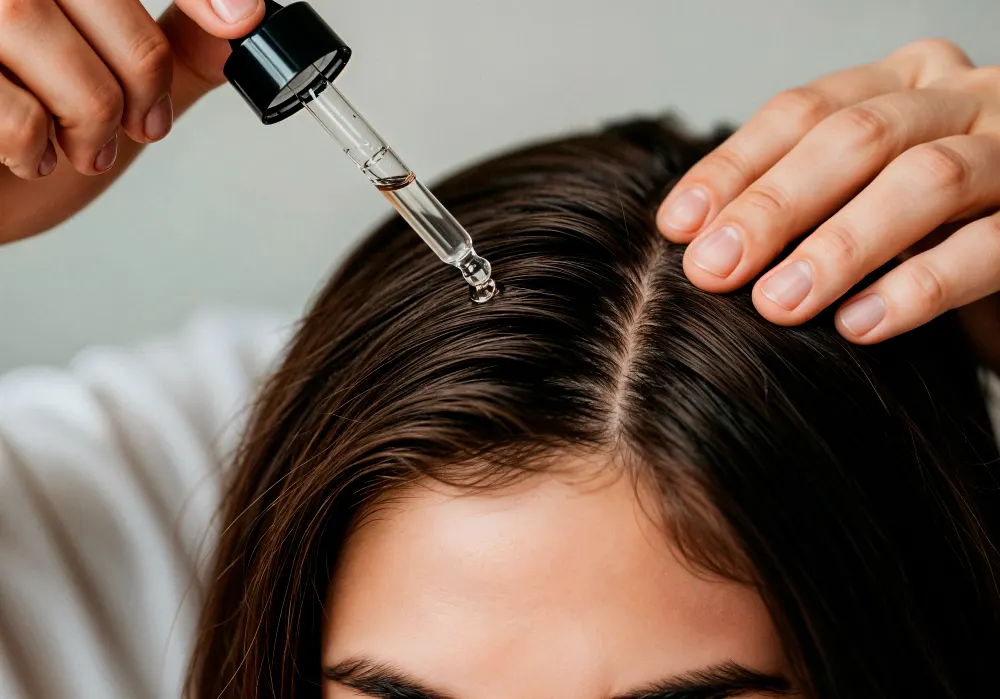
These days, rosemary leaves are used for more than just kitchen décor and food flavouring. Rosemary, a fragrant herb used in Mediterranean cooking, is rapidly becoming the go-to treatment for hair care. Social media is ablaze with stories about how rosemary oil and water can thicken hair, promote hair growth, and even aid in hair loss, from TikTok reels to Instagram.
But is there actual science underlying the trend, or are these claims just hype? Continue reading to discover why rosemary leaves might become your hair’s new best friend, regardless of whether you’re trying to stop hair loss or just want longer, glossier hair.
Why Is Rosemary Trending in Hair Care?

With its abundance of anti-inflammatory, antioxidant, and antimicrobial qualities, rosemary, also known as Rosmarinus officinalis, can nourish your scalp and foster a healthy environment for hair growth.
Studies on rosemary oil have yielded some encouraging findings; however, there has been limited research on rosemary water.
Here is what the research suggests:
–Increased blood flow: Rosemary increases blood flow to the scalp, which guarantees that hair follicles get an abundance of nutrients and oxygen [1].
–Support for hair growth: According to one study, after six months, rosemary oil increased the number of hair strands just as well as 2% minoxidil (Rogaine)[2].
-Relief from dandruff and itching: Rosemary’s inherent antibacterial and antifungal qualities may help lessen the discomfort and flakiness of the scalp.
6 Different Ways to Use Rosemary Leaves for Stronger, Thicker Hair
1. Rosemary Water Rinse

The easiest way to incorporate rosemary into your routine is with a refreshing herbal rinse.
How to Make:
- Bring 2 to 3 fresh rosemary sprigs (or 2 tablespoons of dried rosemary) to a boil in 2 cups of water for about 10 to 15 minutes,
- Cool, strain, and pour the rosemary-infused water over your scalp after shampooing.
- Leave it on, or rinse it out after 15-20 minutes.
Tip: For maximum benefits, pour the chilled rinse into a spray bottle and mist your scalp daily.
2. DIY Rosemary-Infused Oil

Infused oils help strengthen hair from root to tip and nourish your scalp.
How to Make:
- Mix ½ cup of rosemary leaves with 1 cup of a carrier oil (olive, coconut, or jojoba).
- Let the mixture sit and infuse for the entire night after gently heating it without boiling it.
- Before washing your hair, strain and massage the oil into your scalp two or three times a week.
Tip: The effects of rosemary are enhanced, and circulation is increased with a scalp massage.
3. Rosemary Essential Oil Scalp Treatment

For a more concentrated boost, go for rosemary essential oil, but always use it after diluting it.
How to Use:
- Combine 3–5 drops of rosemary essential oil with 1 tablespoon of carrier oil.
- Massage it into your scalp, let it sit for 30 to 60 minutes, and then shampoo as usual.
Caution: Always do a patch test first to prevent skin irritation.
4. Rosemary-Based Herbal Hair Masks

Use nutrient-rich masks to treat your hair and scalp.
Homemade Recipe:
- Combine 2 tablespoons of yoghurt, 1 tablespoon honey, and 1 tablespoon oil infused with rosemary.
- After applying the mixture to the roots and lengths, put a shower cap on and let it sit for 30 to 60 minutes.
- Rinse, shampoo, and savour hair that feels healthier.
5. Rinse with Rosemary Tea

Similar to the water rinse but extra potent. Regular use may aid in scalp cleansing and encourage hair growth.
How to Make:
- Steep 2-3 tablespoons of rosemary leaves in 2 cups of boiling water for 30 minutes.
- After washing your hair, use it as a last rinse once it has cooled.
6. Rosemary Herbal Vinegar Rinse

For someone with an oily scalp or buildup, this rosemary rinse can help restore balance.
How to Make:
- For one to two weeks, steep fresh rosemary in apple cider vinegar (keep the jar sealed ).
- Use the vinegar as a scalp rinse after straining and diluting it (1 tablespoon per cup of water).
While rosemary feeds follicles for the best growth, vinegar aids in residue removal.
Safety and Precautions While Using Rosemary for Hair
While rosemary concoction in any form is gentle, it might not always suit everyone.
- Test on a small patch of skin before applying to your scalp.
- Stop use if you notice redness, itching, or irritation.
- Pregnant women should always consult a doctor before use.
- Be cautious if you have allergies or sensitive skin.
Also, remember, rosemary oil is much more concentrated than rosemary water. Never apply undiluted essential oil directly to your skin or scalp.
Rosemary Water vs. Rosemary Oil: What’s Better?
While rosemary water is easy and gentle, rosemary essential oil is more potent and proven in studies. However, oils require dilution (usually with a carrier oil like coconut or jojoba) and patch testing before use.
If you’re new to hair oils, rosemary water is a good place to start. It’s beginner-friendly, budget-friendly, and suitable for daily use.
Final Thought
Nature doesn’t promise miracles overnight, but rosemary offers a gentle, time-tested way to care for your hair. Whether you rinse it in or spray it on, this aromatic herb could be the boost your scalp’s been waiting for.
(The article is written by Dr.Subita Alagh, Senior Executive, and reviewed by Monalisa Deka, Senior Health Content Editor)
Recommended Reads
Rice, Rinse, Repeat: Does Rice Water Really Stop Hair Fall?
5 Expert Tips to Prevent Hairfall in Monsoon
References
- Ezekwe N, King M, Hollinger JC. The use of natural ingredients in the treatment of alopecias with an emphasis on central centrifugal cicatricial alopecia: a systematic review. J Clin Aesthet Dermatol. 2020;13(8):23-27. PMID:33178378
- Panahi Y, Taghizadeh M, Marzony ET, Sahebkar A. Rosemary oil vs minoxidil 2% for the treatment of androgenetic alopecia: A randomized comparative trial. Skinmed. 2015 Jan-Feb;13(1):15-21. PMID:25842469